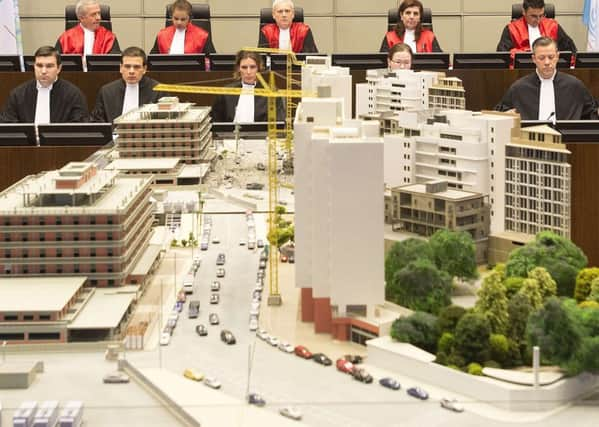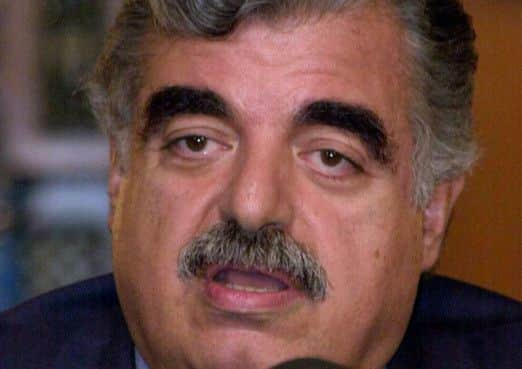Lebanon bomb accused ‘used phones to plan attack’


The trial in absentia of the four, all members of the Hezbollah political party and militant group, began yesterday before a United Nations court in The Hague, nearly nine years after the bombing that almost plunged Lebanon back into civil war.
Mr Hariri’s son Saad – like his father, a former prime minister – said the trial would help promote justice and democracy in a country which has long been afflicted by political violence.
Advertisement
Hide AdAdvertisement
Hide Ad“We are beginning to see the unfolding of how prime minister Hariri and many others of the Cedar Revolution have been killed and assassinated because of their fight for democracy,” he said, referring to the protests after his father’s death that put an end to decades of Syrian occupation of the country.


Even as the trial began, Lebanon was hit by another deadly attack, when a suicide car bomber killed himself and three other people, wounding 26, in a Hezbollah stronghold on Lebanon’s northern border with Syria.
The men on trial – Salim Jamil Ayyash, Mustafa Amine Badreddine, Hussein Hassan Oneissi and Assad Hassan Sabra – are accused of murder, terrorism and orchestrating the bomb attack on Mr Hariri. They could be sentenced to life imprisonment if found guilty.
Prosecutors said data taken from records of billions of calls and text messages showed that the defendants called each other from dozens of mobile phones used to monitor Mr Hariri in the three months before he died and to co-ordinate their movements on the day of the attack.
Prosecution lawyer Alexander Milne said: “They used telephone networks that were put in place and maintained months before the actual conspiracy.”
Afterwards, the attackers attempted to pin the blame on a fictional fundamentalist group called Victory and Jihad in Greater Syria, prosecutors said, calling news outlets to claim responsibility in its name. Investigators found nothing linking Ahmad Abu Adas, the man who claimed responsibility on a video, to the attack scene.
Prosecutor Norman Farrell recalled the attack on 14 February 2005 with the aid of a large-scale model showing Beirut’s St George Hotel, where a Mitsubishi van laden with up to 3,000kg of high-grade explosives was blown up, leaving a large crater.
“The attackers used an extraordinary quantity of high-grade explosives, far more than was required to kill their main target,” he told the trial, being held in a converted basketball court in a moated building that used to house the Dutch intelligence services. Clearly their aim was not to ensure that their target was killed, but to send a terrifying message and to cause panic among the population of Beirut and Lebanon.”
Advertisement
Hide AdAdvertisement
Hide AdMr Hariri’s death triggered public protest and led to the establishment of the UN-backed Special Tribunal for Lebanon.
His Western supporters hailed the tribunal as a chance to close a long chapter of impunity in Lebanon.
Hezbollah has condemned the court as a tool of its arch-enemy Israel.
The bomb drove a wedge between Mr Hariri’s Sunni Muslim community and Lebanese Shiites loyal to Syrian-backed Hezbollah. That rift has been deepened by Syria’s civil war.